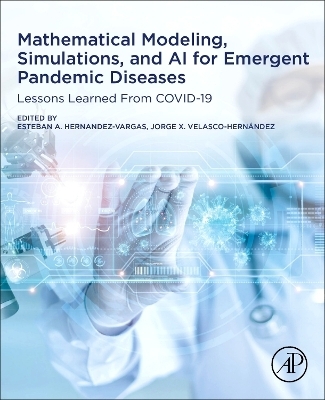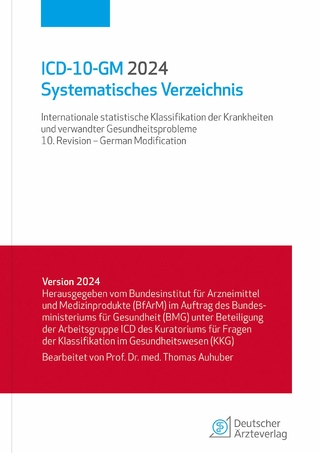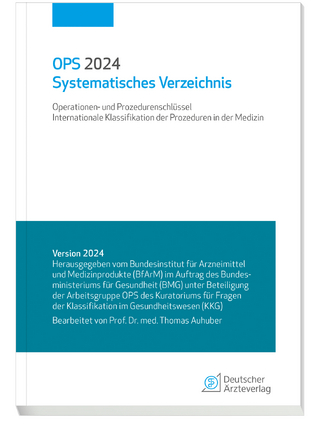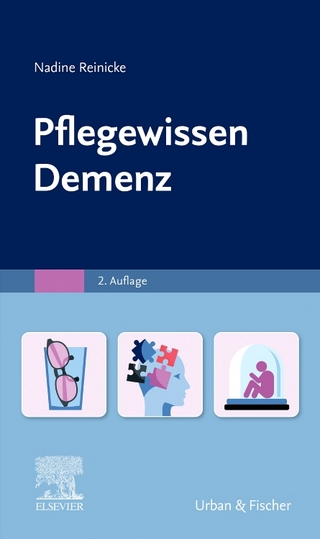
Mathematical Modeling, Simulations, and AI for Emergent Pandemic Diseases
Academic Press Inc (Verlag)
978-0-323-95064-0 (ISBN)
Readers will benefit from learning how to apply advanced mathematical modeling to a variety of topics of practical interest, including optimal allocations of masks and vaccines but also more theoretical problems such as the evolution of viral variants.
Dr. Esteban A. Hernandez-Vargas is a Professor at the Frankfurt Institute for Advanced Studies, Germany, and a research group leader and principal investigator at the Institute of Mathematics (UNAM, Mexico). He obtained his Ph.D. in Mathematics from the Hamilton Institute at the National University of Ireland. In July 2014, he founded the pioneering research group of Systems Medicine of Infectious Diseases at the Helmholtz Centre for Infection Research (HZI). He is a member of the Society of Mathematical Biology, the European Society of Virology, and the Mexican Research Council (CONACYT). Additionally, he is an Editorial Board member of Plos One, Journal of Franklin Institute, as well as a Research Topic Editor at Frontiers of Microbiology and Frontiers of Immunology. Dr. Jorge X. Velasco Hernández did his doctoral studies in mathematics at the Claremont Graduate School. In July 1991 he started his postdoctoral studies at the Biometrynit/Mathematical Sciences Institute of Cornell University. In the summer of 1992, he returned to Mexico to UAM-Xochimilco, changing his assignment to the Department of Mathematics at UAM-Iztapalapa. From 94-96 he did a second postdoc at Cornell University. From 1996 to 2003 he was Full Professor (A, B and C) at UAMIztapalapa. In 2000 he did his sabbatical stay in the Department of Applied Mathematics at ITAM and IMP and in October 2001 he joined the Mexican Petroleum Institute as a Researcher in the Applied Mathematics and Computing Program, where he was Coordinator from 2004 to 2013. In October of that year, he joined the Institute of Mathematics of the UNAM in Queretaro as a Senior Researcher. He is a National Researcher III, Fellow of the Society for Industrial and Applied Mathematics, International Fellow of the Santa Fe Institute, member of the Mexican Academy of Sciences and president of the Mexican Mathematical Society for the period 2014-2016. Edgar N. Sanchez was born in 1949, in Sardinata, Colombia, South America. He obtained his BSEE major in Power Systems from Universidad Industrial de Santander (UIS, Bucaramanga, Colombia) in 1971, his MSEE from CINVESTAV-IPN (Advanced Studies and Research Center of the National Polytechnic Institute), his major in Automatic Control (Mexico City, Mexico) in 1974, and his Docteur Ingenieur degree in Automatic Control from Institut Nationale Polytechnique de Grenoble, France in 1980. In 1971, 1972, 1975 and 1976, he worked for different electrical engineering consulting companies in Bogota, Colombia. In 1974 he was a professor in the Electrical Engineering Department of UIS, Colombia. From January 1981 to November 1990, he worked as a researcher at the Electrical Research Institute, Cuernavaca, Mexico. He was a professor of the graduate program in electrical engineering at the Universidad Autonoma de Nuevo Leon (UANL), Monterrey, Mexico, from December 1990 to December 1996. Since January 1997, he has been with CINVESTAV-IPN (Guadalajara Campus, Mexico) as a Professor of Electrical Engineering in their graduate programs. His research interests are in neural networks and fuzzy logic as applied to automatic control systems. He has been the advisor of 21 Ph. D. theses and 40 M. Sc theses. He was granted a USA National Research Council Award as a research associate at NASA Langley Research Center, Hampton, Virginia, USA (January 1985 to March 1987). He is also a member of the Mexican National Research System (promoted to highest rank, III, in 2005), the Mexican Academy of Science and the Mexican Academy of Engineering. He has published four books, more than 150 technical papers in international journals and conferences, and has served as a reviewer for different international journals and conferences. He has also been a member of many international conferences, both IEEE and IFAC.
1. Modeling during an unprecedented pandemic 2. Global epidemiology and impact of the SARS-CoV-2 pandemic 3. Analysis of an ongoing epidemic: Advantages and limitations of COVID-19 modeling 4. On spatial heterogeneity of COVID-19 using shape analysis of pandemic curves 5. Pandemic response: Isolationism or solidarity? 6. Optimizing contact tracing: Leveraging contact network structure 7. Applications of deep learning in forecasting COVID-19 pandemic and county-level risk warning 8. COVID-19 population dynamics neural control from a complex network perspective 9. An agent-based model for COVID-19 and its interventions and impact in different social phenomena 10. Implementation of mitigation measures and modeling of in-hospital dynamics depending on the COVID-19 infection status 11. A mathematical model for the reopening of schools in Mexico 12. Mathematical assessment of the role of vaccination against COVID-19 in the United States 13. Ascertainment and biased testing rates in surveillance of emerging infectious diseases 14. Dynamical study of SARS-CoV-2 mathematical models under antiviral treatments 15. Statistical modeling to understand the COVID-19 pandemic 16. After COVID-19: Mathematical models, epidemic preparedness, and external factors in epidemic management
| Erscheinungsdatum | 02.03.2023 |
|---|---|
| Mitarbeit |
Herausgeber (Serie): Edgar N. Sanchez |
| Verlagsort | Oxford |
| Sprache | englisch |
| Maße | 191 x 235 mm |
| Gewicht | 750 g |
| Themenwelt | Informatik ► Weitere Themen ► Bioinformatik |
| Mathematik / Informatik ► Mathematik ► Angewandte Mathematik | |
| ISBN-10 | 0-323-95064-7 / 0323950647 |
| ISBN-13 | 978-0-323-95064-0 / 9780323950640 |
| Zustand | Neuware |
| Haben Sie eine Frage zum Produkt? |
aus dem Bereich


